LaTeX templates and examples — Two-column
Recent
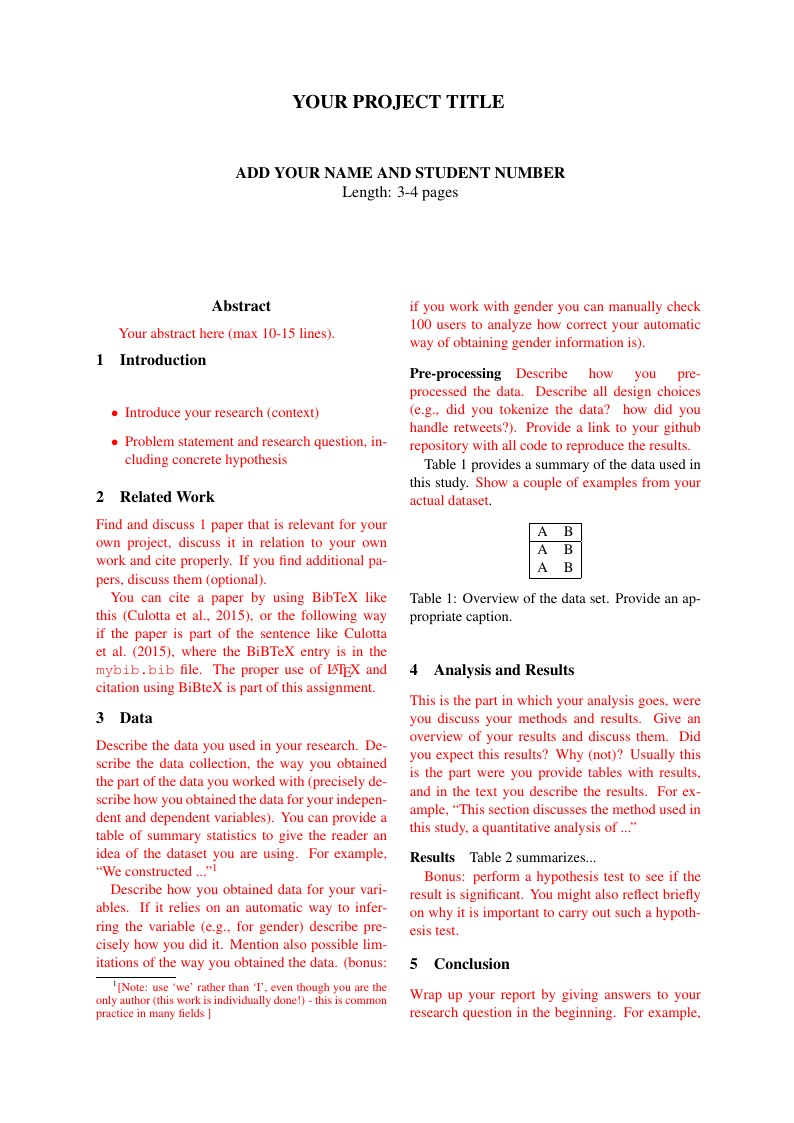
Template for the the final project of the course.
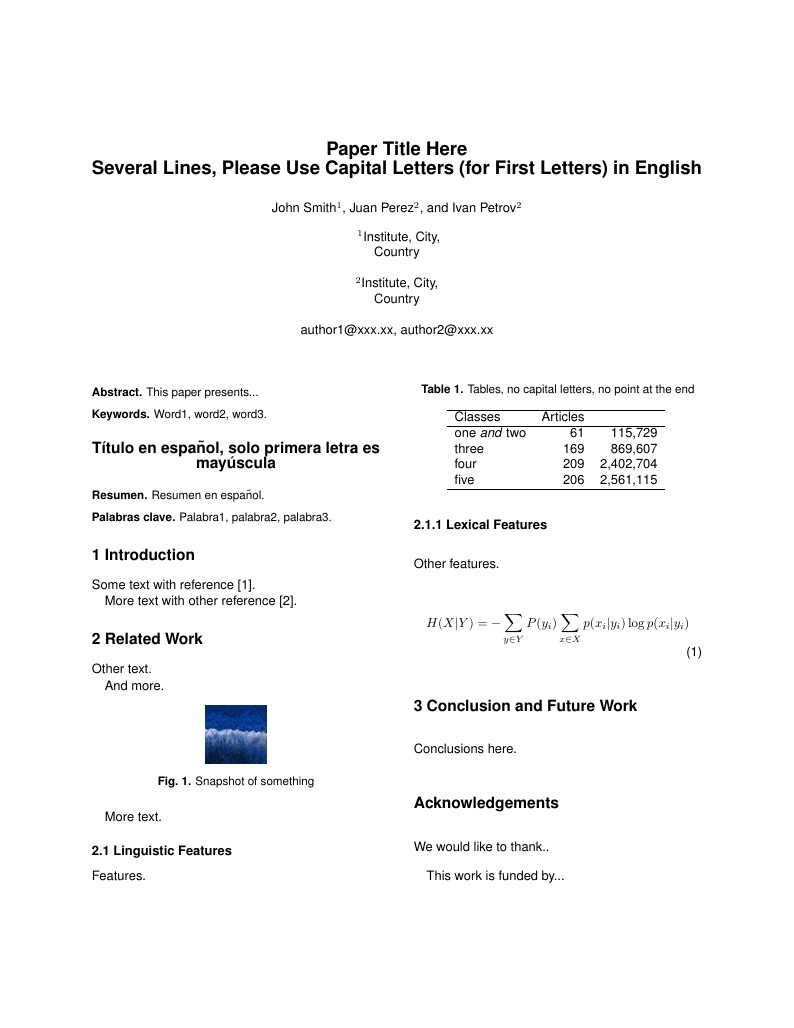
This is the LaTeX style for journal paper submissions to Computación y Sistemas.
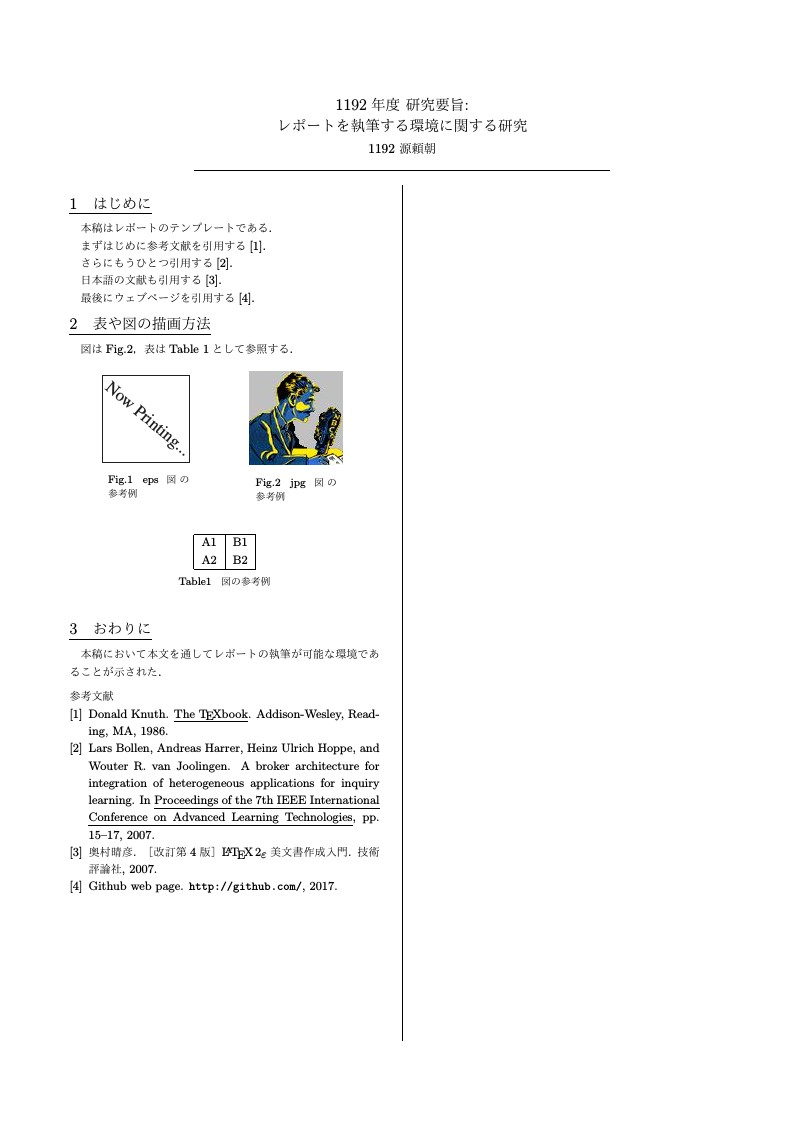
Template for short two column paper in Japanese
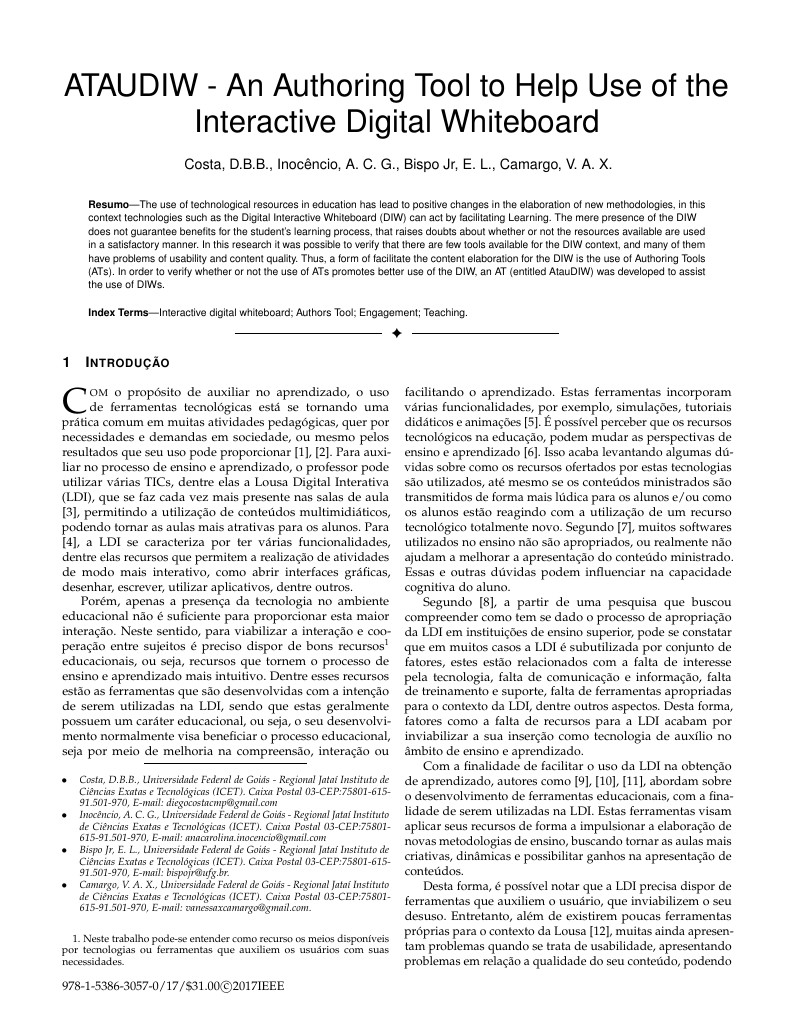
The use of technological resources in education has lead to positive changes in the elaboration of new methodologies, in this context technologies such as the Digital Interactive Whiteboard (DIW) can act by facilitating Learning. The mere presence of the DIW does not guarantee benefits for the student's learning process, that raises doubts about whether or not the resources available are used in a satisfactory manner. In this research it was possible to verify that there are few tools available for the DIW context, and many of them have problems of usability and content quality. Thus, a form of facilitate the content elaboration for the DIW is the use of Authoring Tools (ATs). In order to verify whether or not the use of ATs promotes better use of the DIW, an AT (entitled AtauDIW) was developed to assist the use of DIWs.
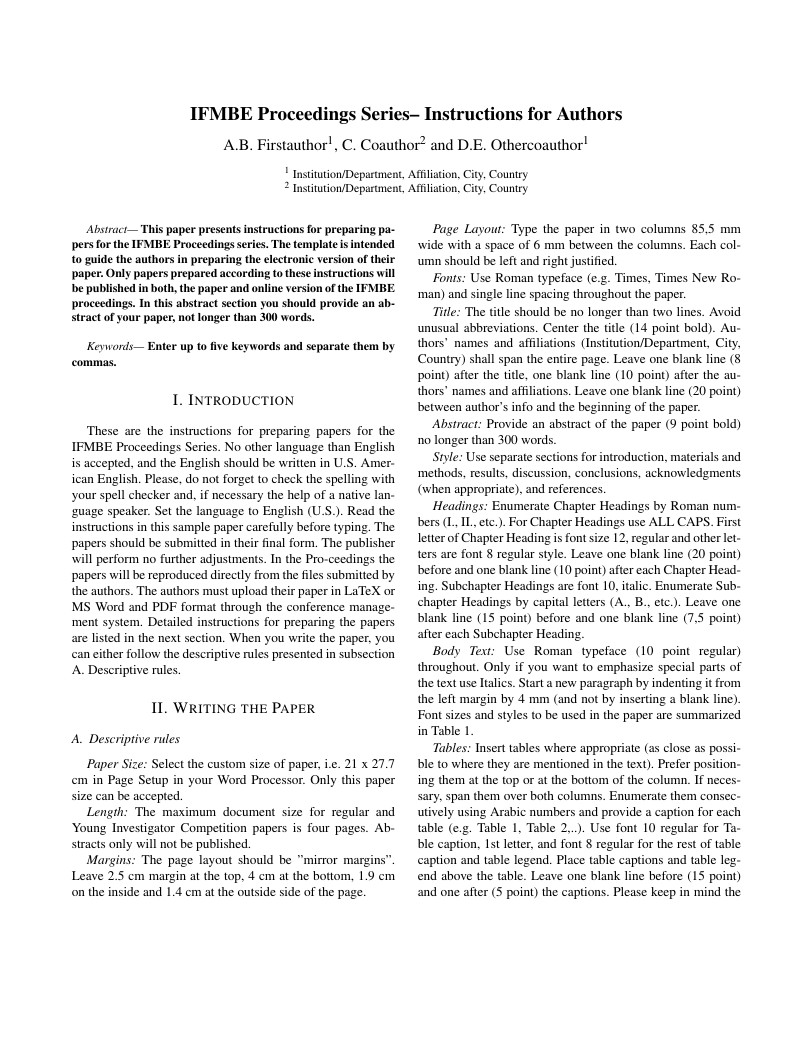
This paper presents instructions for preparing papers for the IFMBE Proceedings series. The template is intended to guide the authors in preparing the electronic version of their paper. Only papers prepared according to these instructions will be published in both, the paper and online version of the IFMBE proceedings. In this abstract section you should provide an abstract of your paper, not longer than 300 words.
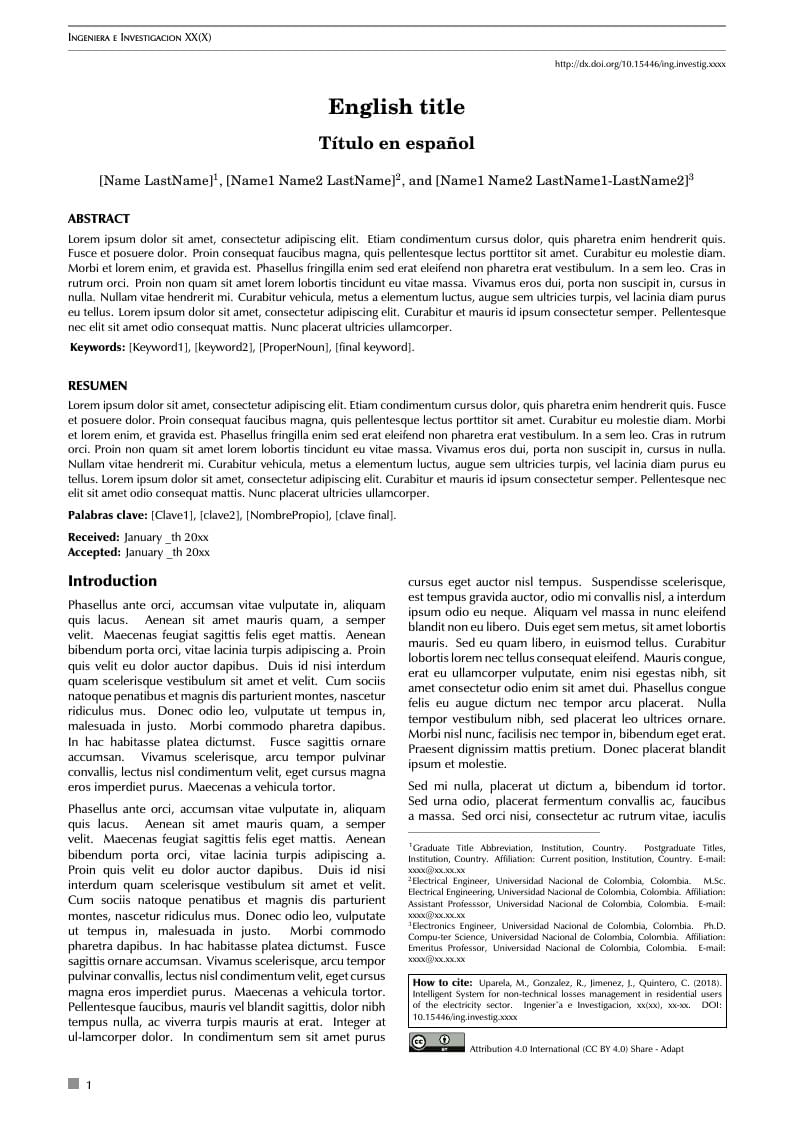
Template to submit articles in Ingeniería e Investigación Journal.
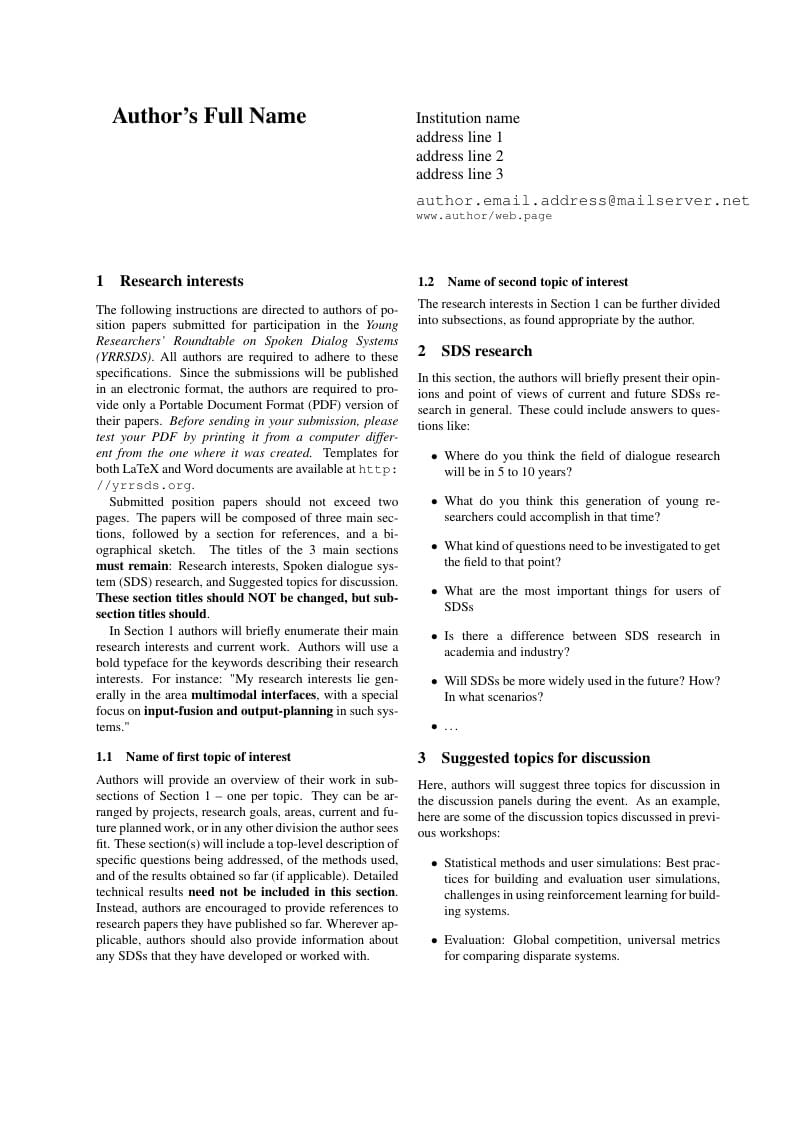
Submission template for the Young Researchers’ Roundtable on Spoken Dialog Systems (YRRSDS 2020)
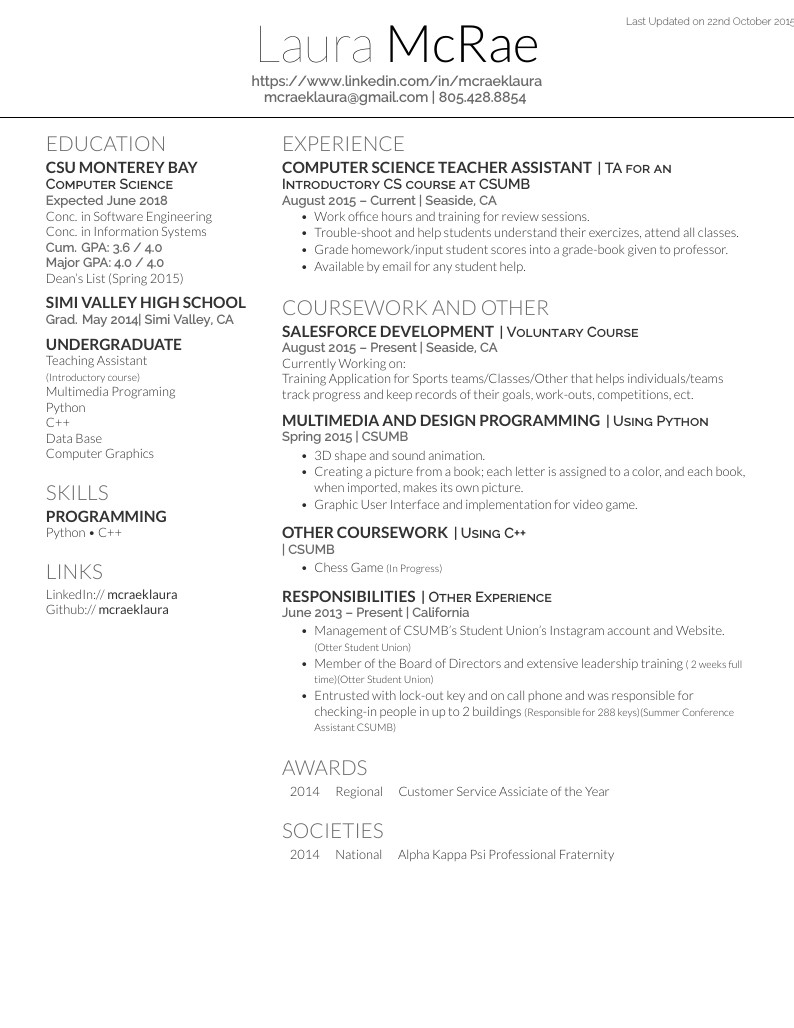
Created using the Deedy - One Page Two Column Resume from LaTeX Template, Version 1.1 (30/4/2014). Original author: Debarghya Das (http://debarghyadas.com) Original repository: https://github.com/deedydas/Deedy-Resume
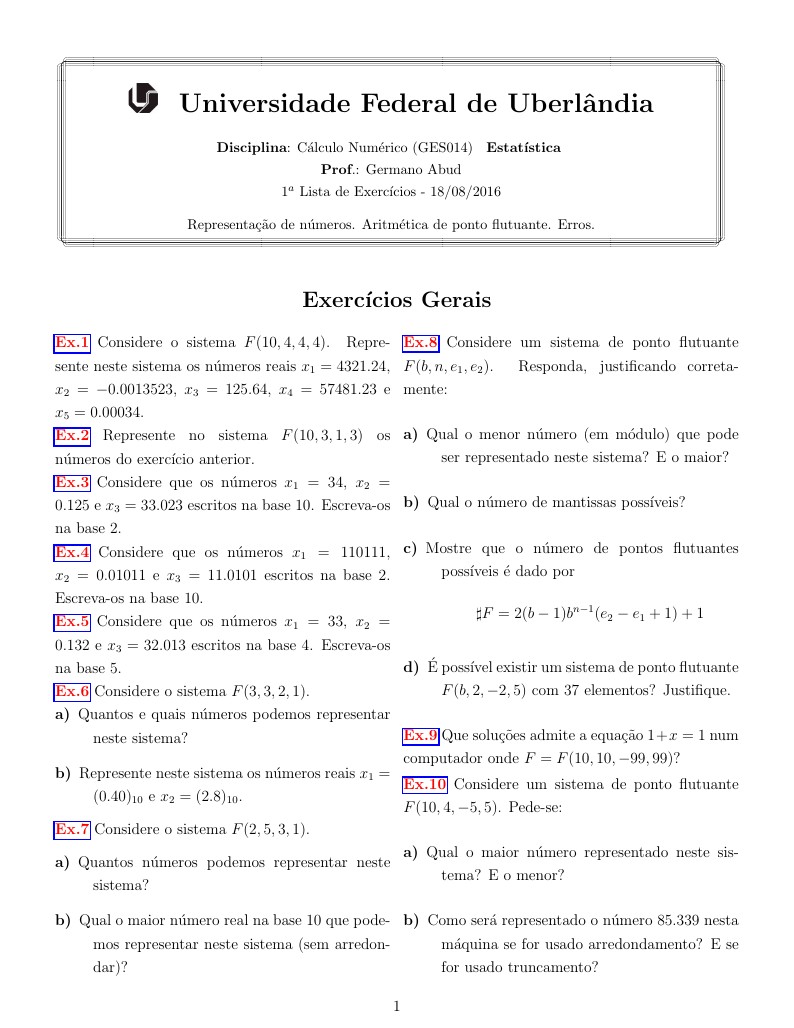
Lista de exercício com gabarito
\begin
Discover why over 25 million people worldwide trust Overleaf with their work.